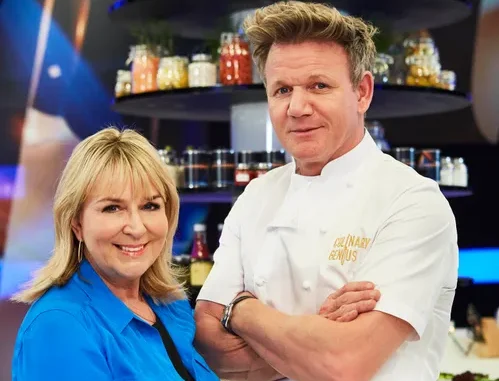
The story begins with a dining room filled with angry customers, plates returning to the kitchen untouched, and staff members who seem more interested in shouting at each other than cooking. The atmosphere is thick with resentment; arguments erupt in front of diners, servers refuse to communicate with the chefs, and the line cooks seem determined to sabotage one another rather than work together. For Ramsay, who thrives on efficiency and teamwork, it is a nightmare scenario. The first night’s dinner service is nothing short of a disaster—burned dishes, raw chicken, cold pasta, and tempers that flare hotter than the ovens. As he surveys the carnage, Gordon doesn’t mince his words. “You’re not a team,” he growls, “you’re a playground fight in aprons.”
What makes this kitchen even more volatile is that the staff doesn’t just lack skill; they lack respect for each other and for the craft of cooking. Line cooks throw pans, servers storm out mid-service, and the head chef, instead of leading, joins the brawl with his own string of profanities. Customers leave in disgust, and the restaurant’s reputation spirals into freefall. Watching it unfold, it seems impossible to imagine how this fractured group could ever function as a team. But if anyone can forge unity from chaos, it’s Gordon Ramsay.
The next day, Ramsay calls the entire staff into the dining room. His presence is commanding, his voice sharp but deliberate. He strips them of their excuses and forces them to face the truth: their restaurant is failing because they are failing themselves. He makes it clear that unless they learn to respect one another and embrace discipline, the doors will close for good. The staff, many of whom initially bristled at his criticism, begin to realize that the man standing before them isn’t just there to yell—he’s there to save them.

Ramsay begins by rebuilding the foundation. He starts with the menu, cutting down the bloated list of uninspired dishes into a lean selection of fresh, flavorful plates that can be executed consistently. He teaches the crew proper knife skills, demonstrates how to season food correctly, and instills in them the importance of timing and communication. But the food is only half the battle. The bigger war is against the toxic culture in the kitchen. Gordon introduces exercises designed to build trust, forcing rival staff members to work side by side on dishes that demand precision and cooperation. Slowly, the screaming gives way to talking, the finger-pointing gives way to accountability.
It is not an easy transformation. Old habits die hard, and there are moments when tempers flare and patience wears thin. Ramsay himself loses his cool more than once, slamming plates onto counters and shouting over the din of excuses. But with each passing day, the crew begins to understand that his fury is not cruelty—it’s urgency. He knows time is short, and unless they embrace change, they will lose everything. And so, bit by bit, the sloppy cooks begin to take pride in their work, the servers begin to coordinate instead of clash, and the head chef learns to lead instead of brawl.
By the time the relaunch night arrives, the transformation is visible. The dining room is buzzing with anticipation, the kitchen hums with focused energy, and for the first time, the staff seems to move as one. Orders are called, responses echo back with confidence, dishes leave the pass polished and consistent, and customers smile as they savor food that finally matches the promise of the menu. Gordon watches from the side, arms folded, a rare smile tugging at his face. It’s not perfect—there are hiccups and moments of tension—but compared to the chaos he first walked into, it is a miracle.
The episode ends with Ramsay gathering the staff once more, praising their progress while reminding them that the journey is far from over. Discipline must become habit, teamwork must become instinct, and pride in their work must replace old grudges. For the first time in a long time, the staff believe it is possible. They stand together not as enemies but as colleagues, united by the common goal of keeping their restaurant alive.
